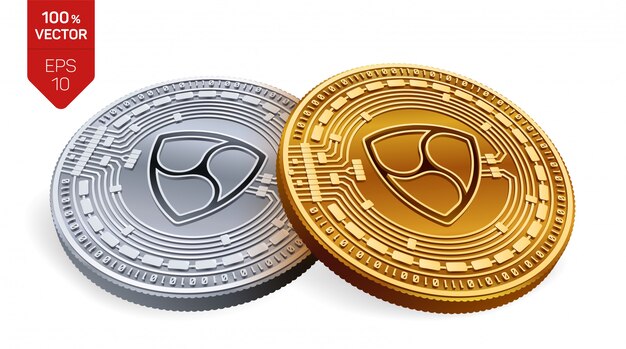Understanding the Difference: Crypto Coins vs Tokens
Exploring the intricacies of digital currencies often beckons us into an intricate web of terms and concepts. Amidst this ever-evolving landscape, it becomes crucial to grasp the nuances that define the unique properties of tokens and coins. By shedding light on their divergent characteristics, we can navigate this intricate realm with confidence and make informed decisions.
Marveling at the Mutable: Tokens and Their Remarkable Presence
These multifaceted entities, often adored for their versatility, transcend conventional perspectives. By harnessing the potential of blockchain technology, tokens emerge as potent catalysts for innovation and digital economies. With a mesmerizing ability to embody countless functionalities, they add vibrancy to ecosystems as diverse as online marketplaces, decentralized finance, and even creative endeavors.
Coins: Emblems of Value, Anchoring Cryptocurrencies
If tokens are the polymaths of the digital realm, coins emerge as the bedrock upon which entire crypto-landscapes are constructed. With unwavering value imbued within their core, coins epitomize the essence of fungibility, becoming the cornerstone of transactions within their respective networks. By acting as the medium for economic transactions, they enable a tangible experience within the abstract world of cryptocurrencies.
As we plunge deeper into the distinct realms of tokens and coins, their contrasting yet complementary attributes undeniably shape the landscape of digital currencies, transforming the way we perceive and engage with economic systems. By comprehending their significance, we empower ourselves to navigate this ever-changing terrain, seizing opportunities and contributing to the evolution of the digital financial world.
Token vs Coin: Understanding the Fundamental Difference
In the realm of cryptocurrency, there exists a fundamental distinction that often confuses newcomers: the difference between tokens and coins. This article aims to shed light on this distinction by exploring the underlying concepts and characteristics that set them apart.
1. The Nature of Tokens and Coins
When discussing tokens and coins in the context of cryptocurrency, it is essential to recognize their inherent nature. Both tokens and coins are digital assets that are built on blockchain technology.
However, tokens are typically associated with decentralized applications (DApps) and represent a form of value within a specific ecosystem. They derive their existence and functionality from a decentralized platform and serve a specific purpose, such as providing access to services or acting as a means of exchange within the ecosystem.
Coins, on the other hand, are standalone cryptocurrencies that operate independently. They have their own blockchain infrastructure and are generally used as a medium of exchange and a store of value. Coins tend to have a larger scope of utility, extending beyond the confines of a specific DApp ecosystem.
2. Functionality and Use Cases
Another key aspect that sets tokens and coins apart is their functionality and use cases. Tokens are primarily designed to facilitate transactions and interactions within a particular DApp or decentralized network. They can represent ownership, govern voting mechanisms, enable rewards, or provide access to certain features and services within the ecosystem.
Coins, on the other hand, are primarily intended for broader monetary purposes. They are used as a means of payment for goods and services, store of value, or investment vehicles. Unlike tokens, coins often have their own native wallets and can be traded on various cryptocurrency exchanges.
Understanding the fundamental difference between tokens and coins is crucial for individuals looking to navigate the cryptocurrency landscape. Whether one is considering investing, participating in an ICO, or engaging with decentralized applications, a clear comprehension of the distinction between these two entities enables more informed decision-making.
Defining Tokens and Coins
In the realm of cryptocurrency, it is essential to distinguish between tokens and coins. Understanding the nuances between these two terms is crucial for anyone venturing into the world of digital assets. While both tokens and coins belong to the broader category of cryptocurrencies, they differ in their underlying functionalities and purposes.
What are Tokens?
Tokens are digital assets that are created and operated on existing blockchain platforms. They are typically built on top of established blockchain infrastructure, such as Ethereum, and are often used to represent a specific asset or utility within a decentralized network. These tokens can serve various purposes, including facilitating smart contracts, granting access to specific services, or even representing fractional ownership of real-world assets. Tokens are commonly distributed through Initial Coin Offerings (ICOs) or Initial Token Offerings (ITOs) and can be exchanged, transferred, or traded on cryptocurrency exchanges.
What are Coins?
Coins, on the other hand, are standalone cryptocurrencies that have their own dedicated blockchain network. They are often created to serve as a medium of exchange, enabling transactions within the network and acting as a store of value. Unlike tokens, which rely on existing blockchain platforms, coins have their own independent blockchain infrastructure, providing them with greater control and autonomy over their functionalities. Coins are typically mined or staked to validate transactions and maintain the security and integrity of their respective networks.
In conclusion, understanding the difference between tokens and coins is fundamental in navigating the cryptocurrency landscape. Tokens are digital assets built upon existing blockchain platforms, representing various utilities and assets within decentralized networks. Coins, on the other hand, are standalone cryptocurrencies with their own blockchain infrastructure, primarily designed for transactional purposes and functioning as stores of value.
The Role of Tokens in Cryptocurrency
In the realm of cryptocurrency, tokens play a crucial role in shaping the digital landscape and driving innovation. These dynamic elements serve as essential building blocks, fostering connectivity, incentivizing participation, and empowering individuals and organizations within the crypto space.
At its core, a token represents a form of digital asset that exists on a blockchain network. While commonly associated with cryptocurrencies, tokens differ from traditional coins in their underlying purpose and functionality. They can serve as utility tokens, acting as access keys to specific functionalities and services within a blockchain ecosystem, or as security tokens, representing ownership stakes or rights to a particular asset or project. Furthermore, tokens can also embody a representation of real-world assets, such as real estate, commodities, or even intellectual property.
One of the key advantages of tokens is their flexibility and versatility within the cryptocurrency ecosystem. They enable the creation of decentralized applications (Dapps) and facilitate the implementation of smart contracts, which streamline and automate various processes. Tokens can be used for crowdfunding initiatives through initial coin offerings (ICOs) or token sales, allowing projects to raise capital by offering their tokens to investors in exchange for cryptocurrencies like Bitcoin or Ethereum.
Moreover, tokens foster vibrant communities and economies within blockchain networks. They incentivize active participation, with token holders benefiting from network growth and success through mechanisms such as staking or receiving dividends. Additionally, tokens can be traded on exchanges, facilitating liquidity and enabling individuals to buy, sell, or exchange tokens for other cryptocurrencies or fiat currencies.
Overall, tokens play a pivotal role in the development and evolution of cryptocurrency, offering innovative solutions, empowering individuals, and promoting decentralized ecosystems. Their widespread adoption and experimentation continue to shape the landscape, unlocking new possibilities and propelling the growth of the digital economy.
The Role of Coins in Cryptocurrency
An essential element within the realm of digital assets is the significant role played by coins in the vast and dynamic landscape of cryptocurrency. These unique digital entities contribute to the functionality, value, and overall operation of the cryptocurrency ecosystem, serving as a fundamental building block of this ever-evolving domain.
Coins, in the context of cryptocurrency, embody a distinct form of digital currency that possesses inherent value and can be utilized as a medium of exchange, facilitating the seamless transfer of assets between parties. They are distinguishable from tokens by their independent existence as a standalone currency, representing a unit of value within a specific blockchain network.
Functionally, coins possess various purposes within cryptocurrency systems. They often serve as a means of compensation for miners, who validate transactions and contribute to the security and integrity of blockchain networks through their computational power. Additionally, coins enable users to participate in various decentralized applications and decentralized finance protocols, granting access to a myriad of services and features within the cryptocurrency ecosystem.
Moreover, coins play a pivotal role in establishing and maintaining the economic stability of cryptocurrency networks. The supply and demand dynamics surrounding coins impact their value and market liquidity, paving the way for investment opportunities and determining the overall financial viability of a particular cryptocurrency. Furthermore, coins act as a representation of governance and voting rights within certain blockchain networks, empowering stakeholders to actively participate in decision-making processes that shape the future of the cryptocurrency project.
In summary, coins serve as the backbone of the cryptocurrency realm, providing a means of transaction, incentivizing network security, granting access to diverse applications and services, and contributing to the economic stability and governance of blockchain projects. Their distinctive qualities and multifaceted roles solidify their position as an integral component of the ever-expanding and transformative landscape of cryptocurrency.
Key Characteristics that Distinguish Tokens from Coins
Exploring the unique attributes that set tokens apart from coins sheds light on the intricate and nuanced nature of cryptocurrencies. By understanding these distinctive qualities, one can gain a deeper insight into the underlying mechanisms that shape the digital economy.
1. Utility-based Functionality
One of the primary differentiating features between tokens and coins lies in their purpose and utility. Unlike traditional coins that primarily serve as a medium of exchange or store of value, tokens possess a broader range of functionalities. Tokens often represent a specific asset, such as real estate or shares in a company, and can be used to access specific services or functionalities within a decentralized platform or ecosystem.
2. Platform Dependency
Another key characteristic that sets tokens apart is their reliance on underlying blockchain platforms. Tokens are typically built on existing decentralized networks, serving as a means of transacting and powering decentralized applications (dApps). Conversely, coins often have their own independent blockchain, acting as the native currency within their respective networks.
In summary, these distinctive attributes highlight the diverse and expanding landscape of cryptocurrencies. Tokens offer versatility and utility beyond traditional coins, enabling access to specific ecosystems and functionalities within the digital economy. Understanding these characteristics is crucial for navigating the dynamic world of blockchain technology and its associated digital assets.
Implications of Token and Coin Usage in the Crypto Ecosystem
Exploring the ramifications surrounding the utilization of tokens and coins within the cryptocurrency ecosystem allows for a deeper understanding of their role and impact. The diverse applications and functions performed by these digital assets have significant implications for various aspects of the crypto landscape.
- 1. Transformation of Economic Transactions
- 2. Decentralization and Democratization of Financial Systems
- 3. Innovation and Disruption in Traditional Industries
- 4. Engagement and Incentivization of Community
- 5. Regulatory Challenges and Legal Frameworks
One of the key implications of token and coin usage is the transformation of economic transactions. By leveraging blockchain technology, tokens and coins offer a secure and transparent alternative to traditional financial systems. This has the potential to reshape the way individuals and businesses transact, allowing for faster, more efficient, and cost-effective processes.
Furthermore, the adoption of tokens and coins contributes to the decentralization and democratization of financial systems. These digital assets enable individuals to have more control over their finances by eliminating the need for intermediaries and facilitating peer-to-peer transactions. This shift has the potential to empower individuals who were previously excluded from traditional financial systems.
In addition, the utilization of tokens and coins fosters innovation and disruption in traditional industries. Through initial coin offerings (ICOs) and tokenization of assets, new funding models and business models have emerged. This has led to the creation of decentralized applications (DApps) and the tokenization of real-world assets, revolutionizing industries such as finance, real estate, and supply chain management.
Moreover, the engagement and incentivization of the community are crucial implications of token and coin usage. Many cryptocurrency projects leverage tokens to reward and incentivize users for their participation, contributing to the growth and sustainability of the ecosystem. This community-driven approach encourages collaboration, development, and adoption, establishing a strong network effect.
However, the proliferation of tokens and coins also presents regulatory challenges and the need for legal frameworks. As governments and regulatory bodies strive to understand and regulate the crypto ecosystem, policies and guidelines are being developed to address issues such as investor protection, anti-money laundering, and fraud prevention. Striking a balance between innovation and regulation is imperative to ensure the legitimate and responsible use of tokens and coins.
In conclusion, the implications of token and coin usage in the crypto ecosystem are vast and far-reaching. From transforming economic transactions to empowering individuals, driving innovation, and navigating regulatory challenges, the impact of these digital assets cannot be understated. Understanding these implications is crucial for both individuals and businesses looking to navigate the evolving landscape of cryptocurrencies.
Evaluating the Impact of Tokens and Coins on the Future of Cryptocurrency
The evaluation of the influence of tokens and coins on the future of cryptocurrency involves assessing their respective contributions and implications for the development and advancement of this digital financial landscape. By analyzing the roles and significance of tokens and coins, we can gain valuable insights into the potential trajectory and evolution of cryptocurrency.
Acknowledging the diverse nature of tokens and coins is fundamental in assessing their impact. Tokens and coins serve distinct purposes within the cryptocurrency ecosystem. While tokens represent a particular asset or functionality on a blockchain platform, coins typically function as a medium of exchange or store of value. Understanding the nuances of these two forms of digital assets is crucial in evaluating their potential influence on the future of cryptocurrency.
Examining the versatility and utility of tokens and coins sheds light on their future implications. The versatility of tokens, enabling unique functionalities and applications within decentralized platforms, opens up new possibilities for innovation and development. Conversely, the widespread adoption of coins as a means of payment and store of value paves the way for the integration of cryptocurrency into mainstream financial systems. Evaluating the impact of tokens and coins requires considering their potential to reshape financial transactions, operations, and economic systems.
The impact of tokens and coins on the future of cryptocurrency extends beyond financial considerations. Tokens, often tied to specific projects or initiatives, facilitate community involvement, incentivization, and governance mechanisms within decentralized systems. Coins, on the other hand, have the potential to revolutionize cross-border transactions, enhance financial inclusivity, and challenge traditional banking systems. Recognizing the broader implications of tokens and coins allows for a more comprehensive evaluation of how they will shape the future of cryptocurrency.
In conclusion, evaluating the impact of tokens and coins involves a thorough analysis of their roles, versatility, and broader implications within the cryptocurrency landscape. By understanding their potential impact on financial systems, technological innovation, and societal paradigms, we can better anticipate the future developments and opportunities that arise with the continued growth of cryptocurrency.
Questions and answers: Token vs coin
What is the difference between a token and a coin in the context of cryptocurrency?
In the context of cryptocurrency, a coin refers to a digital currency that operates independently on its own blockchain, while a token is a digital asset that is built on top of an existing blockchain network.
How do tokens and coins differ in terms of functionality?
Coins are primarily designed to be used as a medium of exchange for goods and services, similar to traditional currencies. Tokens, on the other hand, can have various functionalities, such as representing ownership in a company, giving access to a specific service, or even representing a physical asset.
What impact do tokens and coins have on the cryptocurrency market?
Tokens and coins play a crucial role in the cryptocurrency market. Coins are often seen as the foundation of the market, providing a decentralized alternative to traditional currencies. Tokens, on the other hand, enable various projects and platforms to raise funds through Initial Coin Offerings (ICOs) and create ecosystems around their products or services.
Can tokens and coins be used interchangeably?
No, tokens and coins cannot be used interchangeably. While both are forms of digital currency, their underlying technology and purpose differ. Coins have their own blockchain, while tokens rely on the infrastructure provided by an existing blockchain network.
What should investors consider when deciding to invest in tokens or coins?
Investors should consider several factors when deciding to invest in tokens or coins, such as the project’s whitepaper, team members, market demand, use case, and adoption potential. Additionally, evaluating the underlying technology, tokenomics, and the regulatory environment is vital to making informed investment decisions in the cryptocurrency market.
What is the difference between a token and a coin in cryptocurrency?
A token and a coin are both types of digital currencies in cryptocurrency. However, the main difference between them lies in their underlying technology and functionality. Coins are typically standalone currencies with their own blockchain network, whereas tokens are built on existing blockchain platforms like Ethereum. Tokens can represent various assets, such as utility, security, or equity, and can have different purposes within specific projects or ecosystems.
How does the difference between tokens and coins impact the cryptocurrency space?
The difference between tokens and coins has a significant impact on the cryptocurrency space. Coins have independent blockchain networks and provide a decentralized means of transaction and value storage. On the other hand, tokens rely on existing blockchain platforms, allowing projects to leverage the security and infrastructure of the underlying blockchain. This gives tokens the flexibility to represent different types of assets, participate in decentralized applications, and interact with other tokens or smart contracts. Understanding this difference is crucial for investors, developers, and users when analyzing and engaging with various cryptocurrency projects.
What is a crypto coin?
A crypto coin is a digital currency native to its own blockchain network.
What is the difference between coins and tokens?
Coins typically have their own blockchain, while tokens are built on existing blockchain platforms like Ethereum.
What is a crypto token?
A crypto token is a digital asset representing fungible or non-fungible assets or utilities, usually built on a blockchain network.
What is a native coin?
A native coin is the primary cryptocurrency of a blockchain network, like Bitcoin (BTC) for the Bitcoin blockchain or Ether (ETH) for the Ethereum blockchain.
What is ETH?
ETH is the native cryptocurrency of the Ethereum blockchain, used for transactions, smart contracts, and decentralized applications.
What is an ERC-20 token?
An ERC-20 token is a type of crypto token standard on the Ethereum blockchain, representing fungible assets or utilities.
What are the types of tokens?
Tokens can be classified into fungible tokens, which are interchangeable, and non-fungible tokens (NFTs), which are unique and indivisible.
What are coins or tokens commonly used for?
Coins or tokens can be used for various purposes, including payments, investments, decentralized finance (DeFi), and utility within blockchain ecosystems.
What are non-fungible tokens (NFTs)?
Non-fungible tokens are unique digital assets that represent ownership or proof of authenticity of a specific item or piece of content on the blockchain.








No responses yet